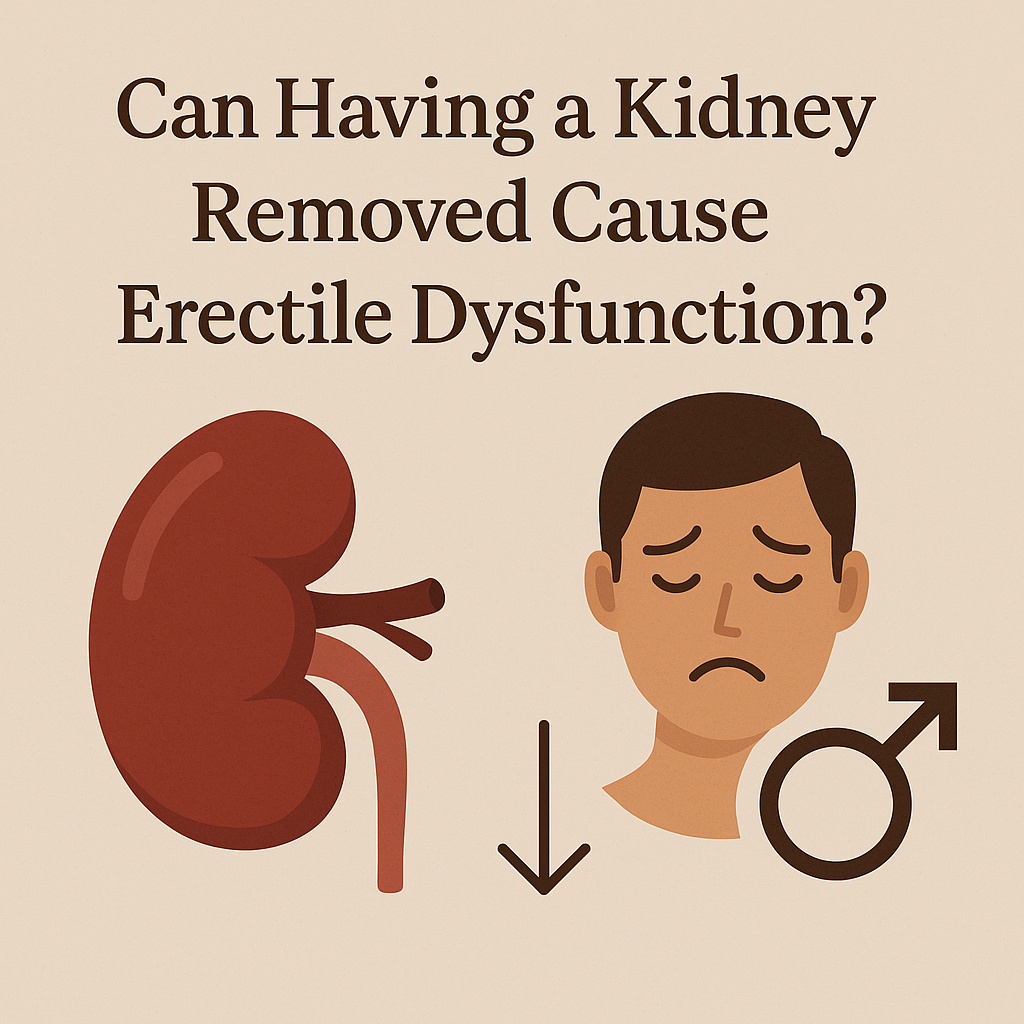Erectile dysfunction (ED) is a common condition that can affect men at any stage of life, although it becomes more prevalent with age or in the presence of underlying health conditions. One such factor that often raises questions is kidney removal, also known as nephrectomy. If you’ve undergone kidney surgery or are considering it, you may be wondering whether it can affect your sexual function — particularly your ability to maintain an erection.
If you’re dealing with ED post-surgery, medications like Vidalista 40mg can offer safe and effective relief.
Let’s explore the connection between kidney removal and erectile dysfunction, and how medications like Vidalista 20 and Vidalista 40mg may offer effective treatment options.
Understanding Kidney Removal (Nephrectomy)
A nephrectomy is a surgical procedure to remove all or part of a kidney. This may be done to treat:
- Kidney cancer
- Chronic kidney disease
- Severe trauma or infection
- Kidney donation
Depending on the reason and extent of the surgery, patients may have one kidney remaining or be placed on dialysis if both kidneys are compromised.
Does Kidney Removal Affect Sexual Function?
The answer is: potentially, yes — but it depends on several factors.
1. Underlying Health Conditions
Many patients who require nephrectomy already have pre-existing conditions such as diabetes, hypertension, or cardiovascular disease. These conditions are also leading causes of erectile dysfunction. Therefore, it’s often not the kidney removal itself, but the broader health picture that plays a role in sexual function.
2. Nerve Damage During Surgery
In rare cases, if surrounding nerves are damaged during surgery — especially in procedures involving the retroperitoneal area — erectile function may be affected. This is more likely in radical nephrectomies where adjacent tissue is removed along with the kidney.
3. Psychological Impact
Surgery, especially involving major organs like the kidney, can have a psychological toll. Depression, anxiety, and body image issues post-surgery can all contribute to ED. It’s important not to underestimate the mental and emotional aspects of sexual health.
4. Hormonal Changes
The kidneys play a role in hormone regulation. After nephrectomy, there may be mild hormonal imbalances, particularly involving testosterone levels or erythropoietin, which can indirectly affect libido and erectile function.
5. Dialysis and ED
For patients who lose both kidneys and undergo dialysis, the risk of ED increases. Studies show that over 50% of men on dialysis experience some form of erectile dysfunction. This is often due to a combination of vascular, hormonal, and psychological factors.
How to Treat ED After Kidney Removal
If you’re experiencing erectile dysfunction after kidney surgery, know that effective treatments are available. The most common and effective first-line treatment is oral PDE5 inhibitors, such as Vidalista.
What is Vidalista?
Vidalista is a brand name for Tadalafil, a PDE5 inhibitor that increases blood flow to the penis during sexual stimulation. It helps men achieve and maintain an erection. It’s available in different dosages, including:
- Vidalista 20: Contains 20mg of tadalafil, ideal for mild to moderate ED.
- Vidalista 40mg: A stronger dose, suitable for men with more severe ED or those who have not responded well to lower dosages.
Choosing the Right Dosage: Vidalista 20 vs. Vidalista 40
The correct dosage should be determined by a healthcare provider, especially if you’ve had a kidney removed. Here’s a general comparison:
| Feature | Vidalista 20 | Vidalista 40 |
|---|---|---|
| Tadalafil dose | 20mg | 40mg |
| Effect onset | 30-60 mins | 30-60 mins |
| Duration | Up to 36 hrs | Up to 36 hrs |
| Recommended for | Mild/moderate ED | Severe ED or non-responders to lower doses |
For patients with one kidney or those on dialysis, kidney function should be closely monitored. In some cases, dosage adjustments are necessary to avoid potential side effects.
Other Treatment Options
Besides medications like Vidalista, other approaches can include:
- Psychological counseling
- Lifestyle changes (exercise, quitting smoking, managing stress)
- Vacuum erection devices
- Hormonal therapy
- Surgical implants (in rare cases)
Always consult your urologist or nephrologist before starting any ED treatment, especially post-surgery.
Final Thoughts
Kidney removal doesn’t automatically lead to erectile dysfunction, but it can contribute — particularly when combined with other risk factors like diabetes, hypertension, and emotional stress. However, always seek medical advice to ensure the treatment is appropriate for your specific condition.





